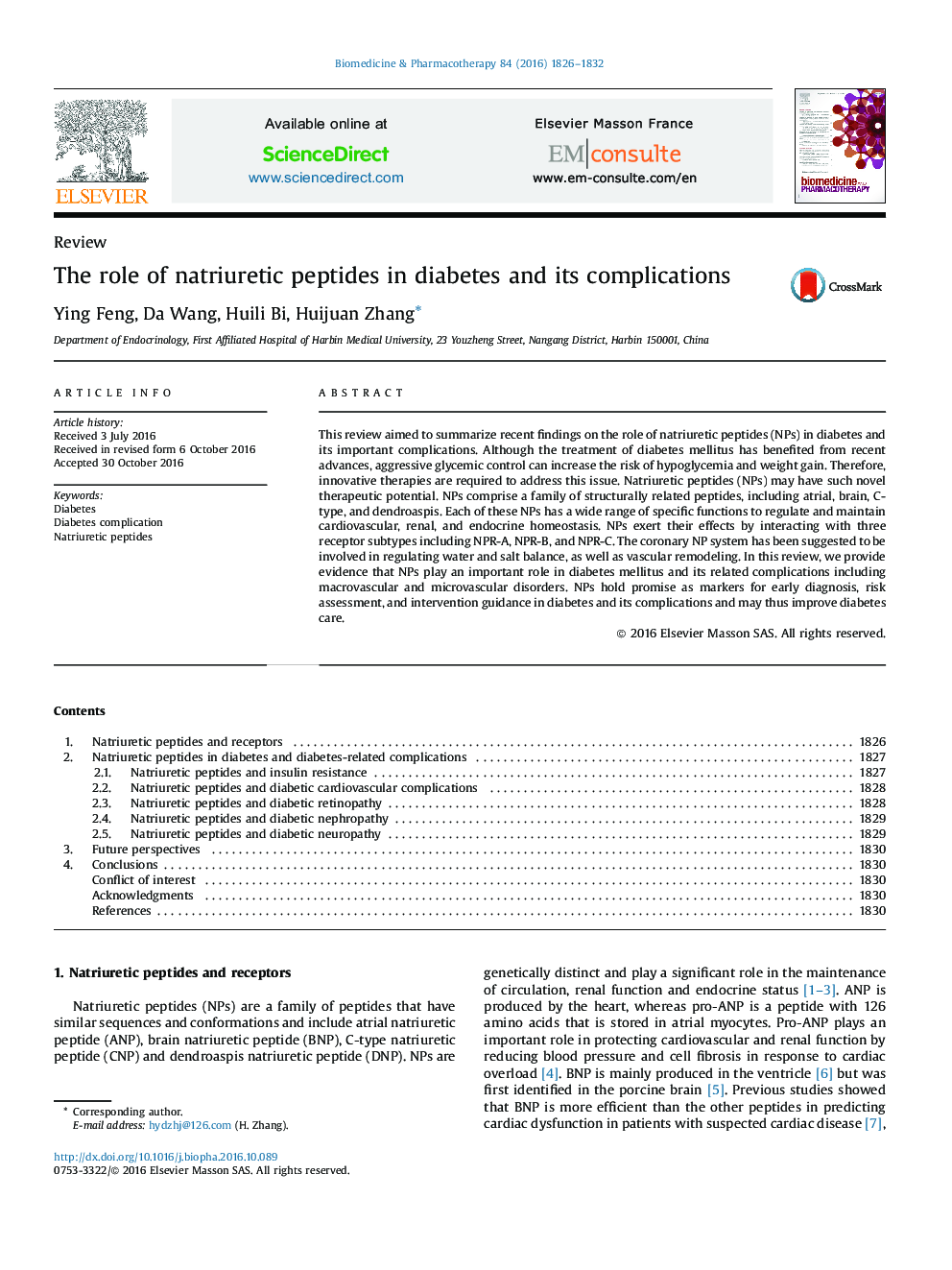| Article ID | Journal | Published Year | Pages | File Type |
|---|---|---|---|---|
| 5553332 | Biomedicine & Pharmacotherapy | 2016 | 7 Pages |
This review aimed to summarize recent findings on the role of natriuretic peptides (NPs) in diabetes and its important complications. Although the treatment of diabetes mellitus has benefited from recent advances, aggressive glycemic control can increase the risk of hypoglycemia and weight gain. Therefore, innovative therapies are required to address this issue. Natriuretic peptides (NPs) may have such novel therapeutic potential. NPs comprise a family of structurally related peptides, including atrial, brain, C-type, and dendroaspis. Each of these NPs has a wide range of specific functions to regulate and maintain cardiovascular, renal, and endocrine homeostasis. NPs exert their effects by interacting with three receptor subtypes including NPR-A, NPR-B, and NPR-C. The coronary NP system has been suggested to be involved in regulating water and salt balance, as well as vascular remodeling. In this review, we provide evidence that NPs play an important role in diabetes mellitus and its related complications including macrovascular and microvascular disorders. NPs hold promise as markers for early diagnosis, risk assessment, and intervention guidance in diabetes and its complications and may thus improve diabetes care.
